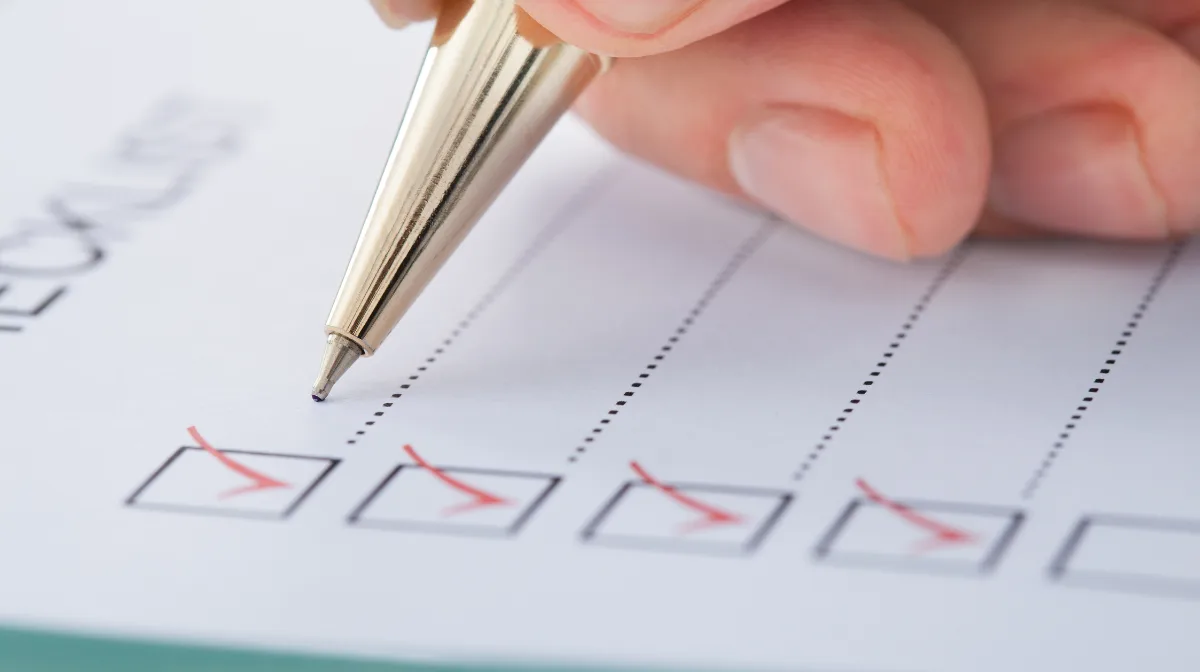For foreign engineers seeking employment in Japan, job interviews are a crucial hurdle. Success in Japanese interviews requires proper preparation, as candidates are evaluated on both technical skills and personality while navigating Japan’s unique corporate culture and business etiquette.
This article provides detailed information on everything foreign engineers need to succeed, from the characteristics of Japanese-style interviews to specific preparation strategies and post-hiring preparations.
- Japanese interview styles and expectations.
- How to showcase language and technical skills.
- Japanese business culture essentials.
1. Japanese Job Interviews Basic Knowledge

Japanese job interviews reflect unique cultural traditions and customs that differ from other countries. Here’s an easy-to-understand explanation of Japanese-style interview characteristics and tips for success.
Characteristics of Japanese-Style Interviews
Japanese companies typically conduct three types of interviews: individual interviews, group interviews, and group discussions. Each type evaluates different aspects, so prepare accordingly.
Japanese companies uniquely emphasize communication skills and personality alongside work experience. Interviews typically last 30 minutes to an hour, covering a wide range of questions.
When applying to Japanese companies, you’ll need to prepare both a resume and a detailed work history document.
Differences Between Global and Japanese Companies
There are significant differences between global and Japanese companies. The key is to understand these differences and choose a work style that matches your aptitude and values.
Japanese Companies
Seniority-based promotion and lifetime employment are common, with a strong emphasis on teamwork. Salaries increase with age and years of service, and employee benefits are comprehensive. Work is often conducted by entire departments, with individual roles sometimes being less clearly defined.
Global Companies
These companies emphasize performance-based evaluation, focusing on individual achievement. Salaries are determined by work results, and promotions are merit-based. Job-type employment clearly defines work responsibilities. While they value initiative and quick decision-making, employment can be less stable.
Key Evaluation Points for Foreign Candidates
When hiring foreign IT professionals, companies focus heavily on why candidates chose their company and why they want to work in Japan. Common questions include reasons for working in Japan, requiring clear answers about cultural and family background.
Companies also evaluate candidates’ understanding of the latest IT industry news to assess their information-gathering abilities and industry insights.
Additionally, they assess stress tolerance and adaptability to Japanese society through questions about experiences in Japan and lessons learned from past projects.
It’s worth noting that frequent job changes are viewed differently in Japan compared to other countries.
2. Demonstrating Japanese Language Skills and Interest

For foreigners seeking employment in Japanese companies, it’s essential to effectively demonstrate Japanese language abilities and enthusiasm for learning. Here are specific ways to showcase these qualities.
Presenting Concrete Japanese Language Skills
The Japanese Language Proficiency Test (JLPT) is a primary way to prove Japanese language ability.
The test has five levels from N1 to N5, with N1 and N2 being particularly advantageous for employment. Certain visa statuses require N4 or higher. For example, the “Specified Skilled Worker” visa requires passing N4.
JLPT results serve as a benchmark for Japanese comprehension ability. However, the test doesn’t measure conversational skills.
Even after hiring, continued Japanese study is necessary for business Japanese and technical terminology. It’s recommended to use test certificates to demonstrate your Japanese ability while pursuing employment in Japan.
Enthusiasm for Learning Japanese
In Japanese company interviews, foreign candidates should demonstrate their motivation to learn Japanese by showing specific goals and emphasizing daily efforts.
For example, mention concrete habits like “aiming to pass N2 in four months” or “solving 20 practice problems daily.”
It’s also effective to prepare data showing your Japanese language improvement and visualize your growth.
Communicate long-term vision and passion for learning, while showing interest in the latest trends in Japanese language education to demonstrate strong motivation and enthusiasm to interviewers.
■日本でエンジニアとしてキャリアアップしたい方へ
海外エンジニア転職支援サービス『 Bloomtech Career 』にご相談ください。「英語OK」「ビザサポートあり」「高年収企業」など、外国人エンジニア向けの求人を多数掲載。専任のキャリアアドバイザーが、あなたのスキル・希望に合った最適な日本企業をご紹介します。
▼簡単・無料!30秒で登録完了!まずはお気軽にご連絡ください!
Bloomtech Careerに無料相談してみる
3. How to Showcase Technical Skills

To effectively demonstrate technical skills, it’s important to know how to present practical experience and portfolio. Here are the key points for each:
Effective Ways to Present Practical Experience
To effectively showcase practical experience, clearly communicate project scale, roles, and skills. It’s important to accurately convey years of experience, programming languages used, and certifications held.
In fields like IT and legal work, demonstrating enthusiasm and initiative for continuous learning is also valued.
Other Effective Actions
Participation in internal study groups and external seminars can demonstrate learning motivation. Even with limited experience, you can make an impression by providing detailed information about a single project while emphasizing your willingness to learn.
Tips for Portfolio Presentation
When foreign engineers interview in Japan, they should prepare portfolios in both Japanese and English. The key is to create a concise and easy-to-read structure.
Also, incorporate visual elements like charts and graphs to convey information effectively.
Specific Portfolio Tips
- Clearly document self-introduction, skills, and project experience
- Demonstrate understanding of Japanese corporate culture and soft skills
- Share GitHub code and demo videos to concretely show technical abilities
- Highlight unique perspectives from home country experience and international viewpoint
- Emphasize Japanese language ability and communication skills
4. Understanding Japanese Business Culture

Japanese business culture has many unique aspects that might be challenging for foreigners to understand. However, mastering these basics will pave the way for successful communication.
Basic Business Etiquette
In Japanese business culture, courtesy and honorific language are extremely important.
Workplace greetings are essential, with phrases like “ohayou gozaimasu” (good morning) and “otsukaresama desu” frequently used. Proper honorific language is required when speaking with superiors and clients, demanding polite speech.
Punctuality is highly valued, with employees typically arriving before their scheduled start time. Business card exchange is treated as a formal ritual and forms an important part of self-introduction.
Following these manners demonstrates professionalism and helps build positive workplace relationships.
Importance of Ho-Ren-So
Ho-Ren-So (報連相: Reporting, Communicating, Consulting) is a crucial concept in Japanese business culture that facilitates smooth communication.
This system effectively prevents misunderstandings within teams and with clients, helping avoid troubles and mistakes.
Through thorough Ho-Ren-So, you can receive appropriate advice from supervisors and support from team members, enabling smooth operation of tasks.
When problems occur, immediate reporting allows for quick countermeasures and minimizes damage.
Understanding Teamwork
In Japanese workplaces, team success takes priority over individual achievement. Decisions are often made through meetings, with consensus being highly valued.
When failures occur, rather than seeking individual responsibility, the team typically works together to find solutions. This collectivist approach contrasts with the individualistic cultures common overseas.
Long-term relationship building is valued, with priority given to permanent partnerships. This teamwork approach creates harmonious work environments and contributes to overall organizational efficiency.
■日本でエンジニアとしてキャリアアップしたい方へ
海外エンジニア転職支援サービス『 Bloomtech Career 』にご相談ください。「英語OK」「ビザサポートあり」「高年収企業」など、外国人エンジニア向けの求人を多数掲載。専任のキャリアアドバイザーが、あなたのスキル・希望に合った最適な日本企業をご紹介します。
▼簡単・無料!30秒で登録完了!まずはお気軽にご連絡ください!
Bloomtech Careerに無料相談してみる
5. Specific Techniques for the Interview

Interviews are one of the most crucial steps in job hunting. Even if you’re nervous during the interview, thorough preparation and effective strategies will help you approach it with confidence.
Below are specific techniques for interview success, explained in an easy-to-understand way.
In-Person Interview Guidelines
When foreigners have in-person interviews in Japan, understanding Japanese-specific culture and manners is crucial.
First, wear a clean, professional suit. Arrive five minutes early, and always call if you’ll be late.
Wait quietly in the waiting room, maintain good posture, and face interviewers with a bright expression. Answer questions concisely and clearly, and don’t hesitate to ask for clarification when needed. Make eye contact to demonstrate confidence.
Online Interview Considerations
For online interviews, preparation is key to success. Verify the settings and connection methods of the tools you’ll use, and ensure a stable Wi-Fi environment.
When dealing with time differences, choose convenient times for both parties and communicate both Japanese and local times to avoid confusion. Have backup contact methods like phone numbers ready in case of technical issues.
Presenting Career Plans
In Japanese company interviews, it’s important to show long-term career vision. Through self-analysis, identify your strengths and interests, finding alignment with company goals and values.
Prepare to explain specific goals for 5 and 10 years ahead, along with growth plans to achieve them.
While understanding Japanese concepts like lifetime employment and seniority-based advancement, balance personal growth with company contribution.
When presenting career plans, aim for content that shows both enthusiasm and practicality.
6. Preparation for Post-Hiring

Smooth transition after hiring requires advance preparation. Here are the key points:
Visa Application Process
The work visa application begins with applying for a Certificate of Eligibility. The hiring company typically acts as a proxy, preparing necessary documents for submission to the regional immigration bureau.
This process usually takes 1-3 months. Once the certificate is issued and sent to you, take it to a Japanese embassy or consulate to apply for your visa.
After receiving the visa, you must enter Japan within 3 months in most cases.
Understanding Salary Structure and Benefits
When working for Japanese companies, it’s important to understand Japanese salary structures and benefits. Benefits refer to various support services and perks companies provide in addition to salary.
Statutory benefits include mandatory systems like employment insurance and health insurance.
Many companies also offer additional benefits to support employee life, such as housing allowances, company cafeterias, and savings programs.
7. Common Interview Questions and Response Strategies

For foreign engineers interviewing in Japan, it’s essential to be prepared for common questions. Here are effective response strategies for various technical and personal questions to help you prepare.
Technical Question Strategies
Technical interviews are crucial processes evaluating candidates’ background, behavior, problem-solving abilities, and technical knowledge comprehensively. Interviewers are often field engineers who ask questions based on practical experience and thought processes.
Preparation for Technical Questions
Organize specific episodes and skills for each question category to effectively showcase your strengths. Prepare questions about the company to demonstrate interest and motivation.
Personal Question Strategies
Personal questions often focus on cultural fit and team compatibility. Before the interview, organize your career plans and workplace expectations to communicate them clearly.
Preparation for Personal Questions
Be ready for questions like “What type of people do you want to work with?” and “How do you handle stress?” Help them understand your values and communication style.
Particularly, demonstrate your understanding of and adaptability to Japanese workplace culture to show compatibility with the company.
8. Thorough Preparation is Key to Interview Success in Japan
Success in Japanese company interviews requires not only technical skill demonstration but also understanding and adaptability to Japanese corporate culture.
Through thorough preparation and effective communication of your strengths, you can make a positive impression on interviewers.
Understanding post-hiring procedures will help ensure a solid first step in your career. Have courage and take on the challenge!

















